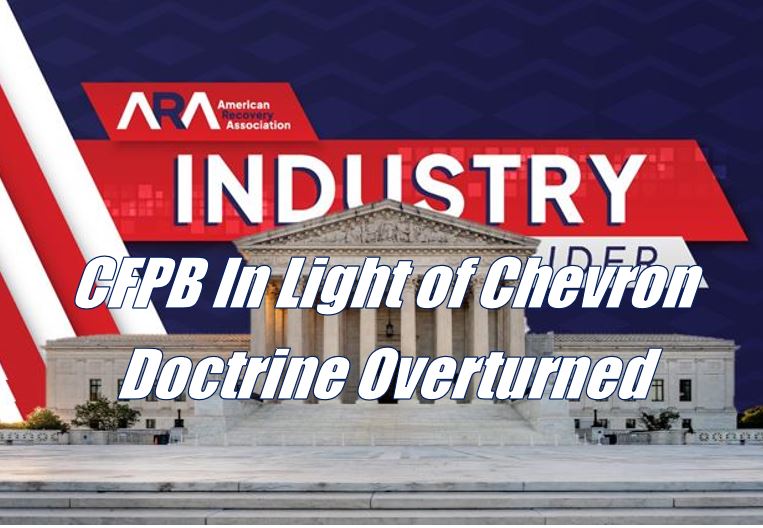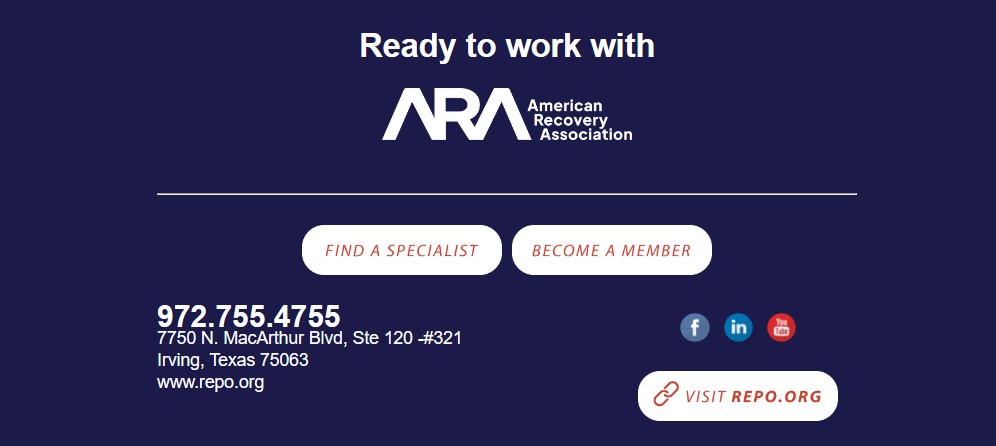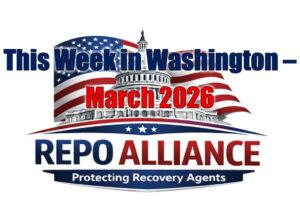CFPB In Light of Chevron Doctrine Overturned
ARA Members, partners and colleagues,
By a 6-3 majority, the Chevron Doctrine (named after the 1984 opinion of the Supreme Court in Chevron U.S.A. Inc. v. National Resources Defense Council, Inc., 467 U.S. 837) has been overturned.
The Supreme Court’s opinion was issued on Friday, June 28 in Loper Bright Enterprises et al v. Raimondo, Secretary of Commerce, et al, now referred to in discussions as Loper Bright.
Put simply, under the Chevron Doctrine, courts had to apply a two part test in assessing the actions of federal agencies. If the statute adopted by Congress was clear on the issue before the court, the court had to follow congressional intent. However, if the statute was ambiguous on, or simply did not address, the issue before the court, the court had to defer to the agency’s interpretation as long as it was reasonable, even though the court would have reached a different interpretation.
With the overruling of the Chevron Doctrine, going forward, generally courts should no longer give mandatory deference to a regulation (either an existing regulation or one promulgated in the future) by a federal agency empowered by Congress to issue regulations under a federal statute.
The opinion is based entirely on Section 7 of the Administrative Procedure Act (the “APA”). Section 7 specifies that courts, not agencies, will decide “all relevant questions of law” arising on review of an agency regulation.
Clearly, the opinion will jeopardize the ability of agencies to promulgate regulations that will likely be upheld by the courts. It is more likely that, going forward, regulations will be challenged either directly in an action against the agency under the APA, or collaterally in a private lawsuit against a defendant whose defense is that it relied on and complied with an agency regulation.
While the demise of Chevron is important for all federal agency actions, the CFPB may face more consequences than many other agencies, given its aggressiveness in interpreting federal statutes and pushing the envelope with respect to its own authority.
It is important to note that Loper Bright does not invalidate previous rulings. The opinion will apply to all non-final cases in which the legality of agency regulations are being challenged and to all lawsuits initiated in the future against any regulations whose legality is in question.
This decision does introduce concerns in the industry and we know industries need certainty to conduct business. It also opens the door for an avalanche of lawsuits challenging regulations directly or in private lawsuits.
Sincerely,
The ARA Board












More Stories
Repo Alliance – This Week in Washington – March 2026
Royal Key Supply Announces Kevin Zwahlen as Account Executive – Repossession Sector
CALR Meets with State Repossession Regulators
Powering Smarter Recoveries, Vendor Safety and Faster Workflows
Take the Survey: Tell RDN What Recovery Pros Need Most
One Year Later: How Real-Time Communication Is Keeping Recovery Agents Safer